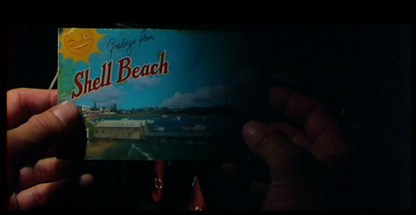|
|
Before Their Time: Dark CityBy Daniel MacDonaldSeptember 3, 2009
DVD is where Dark City really came into its own, premiering early in the format's life cycle and featuring one of the most stacked special features set available at the time: two audio commentaries, including one by Roger Ebert, film comparisons to Metropolis, information on set design, and a contribution from fantasy writer Neil Gaiman. Given the opportunity to unlock Dark City's delights in the comfort of the home, people seemed to give the movie a second chance, and it became more and more appreciated for both its acknowledgement of its forefathers in cinema history and its own boldly original vision. There's a great deal of texture throughout Dark City, and it's a picture that rewards multiple viewings. Were it released today, would Dark City have done much better? That's a tough question to answer: audiences' appetites for intellectual exercise tend to vary virtually from day to day, and Dark City's not an easy picture to market. There is a simple, straightforward answer to all of the plot's mysteries at its core, yet it takes nearly the full running time to get there. How can that kind of patience be encouraged? Perhaps Dark City is one of those movies destined to be before its time no matter when its time is, a film that is spread virally amongst fans, the elusive cachet of cool that goes along with liking a picture others haven't even heard of driving viewers to seek it out
[ View other Before Their Time columns ]
[ View other columns by Daniel MacDonald ]
[ Email this column ]
|

|
|
|

|
Sunday, May 5, 2024
© 2024 Box Office Prophets, a division of One Of Us, Inc.


